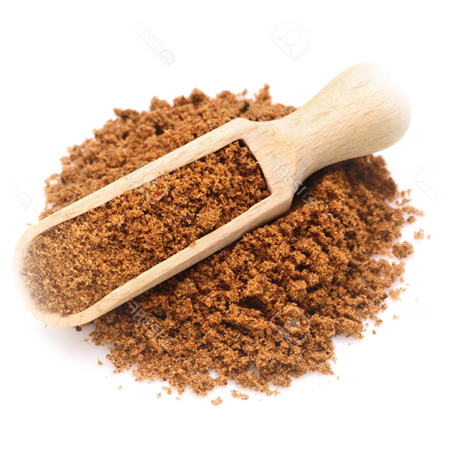Nutmeg, Powder (Myristica fragrans) – Dried Herb, Organic
$28.02 – $280.20
The Nutmeg plant is a tropical evergreen tree with multiple stems that reach heights between 30-60 feet tall. The tree has narrow, oval leaves and bears male or female yellow blossoms that are pollinated by insects including beetles, flies, thrips and even bees. The Nutmeg plant yield fruit eight years after sowing, and reaches its prime in 25 years and bears fruit for 60 years or longer.
Nutmeg isn’t really a nut, but the kernel of an apricot-like fruit and when fully mature it splits in two, exposing a crimson-coloured aril (called the mace), surrounding a single shiny brown seed–the nutmeg. Native to the Moluccas or the Banda Islands, a cluster of small volcanic islands historically known as the Spice Islands in Indonesia. Nutmeg belongs to the Myristicaceae family or Nutmeg family containing 15 other genera and about 380 species of evergreen trees found throughout moist tropical lowlands.
The earliest evidence of Nutmeg being used came from 3,500 year-old residue on ceramic material that archeologists dug up from the island of Pulau Ai, which is one of the Banda Islands in eastern Indonesia. There is also evidence that both Nutmeg and Mace were discovered as early as the 1st century AD when Roman author Pliny spoke of a tree bearing nuts with two flavours. Later, Emperor Henry VI had the streets of Rome fumigated with Nutmegs before his coronation.
Arab physicians seem to have used Nutmeg as folk medicine from the first centuries AD but there is not enough evidence to know exactly what it was used for. Later, Arab physicians referred to Nutmeg as warming and drying and by the 11th century the spice was praised for its effect on the kidneys, liver and spleen. As well as for pain, lymphatic issues, to regulate the bowels and as an aphrodisiac.
Hindus knew of the spice from early times and described its warming and stimulating properties and recommended it for digestion, headaches, nerve pain, fevers, cold and intestinal weakness.
The spice Nutmeg has a distinctive pungent fragrance with a warm slightly sweet taste and is is used to flavour many kinds of baked goods, confections, puddings, potatoes, meats, sausages, sauces, vegetables and beverages such as eggnog.
Properties:
The taste and energetics of Nutmeg are aromatic, bitter, slightly sweet, pungent, warming and astringent. Nutmeg has an affinity to the kidneys, liver, spleen, nervous system, digestive system, lymphatic system, head and uterus.
How to use:
Nutmeg Powder is a popular addition to spice baking recipes and can also be added to herbal teas. Often used in mulled wine, chai teas and eggnog.
Cautions & contraindications:
Long-term use of Nutmeg in doses of 120mg or more daily has been linked to hallucinations and other mental side effects. People who have taken larger doses of Nutmeg have experienced nausea, dry mouth, dizziness, irregular heartbeat, agitation and hallucinations. Use with caution.
This information is for educational purposes only and is not intended to diagnose, treat or cure any disease or illness. Please consult your healthcare provider prior to the use of this product if you are pregnant, nursing, taking medications or have a medical condition. Individual results may vary.


Reviews
There are no reviews yet.